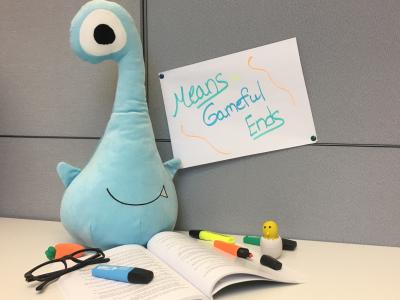Doctoral thesis: How should gamification be designed?
Why are games that captivating? Can we learn from game design and make other activities of our lives as captivating? For example, can we use game design to engage students with their educations or employees with their work?
- I have particularly studied how to design systems and activities through gamification in order to make them as engaging as possible, explains Lobna Hassan.
In her doctoral thesis Hassan uses several psychology theories to outline why gamification is a powerful engagement tool. However, while some gamification designs are successful for some users, the same designs may not succeed in different contexts. The thesis advices designers on which gamification features to select depending on the goals that the users of their systems and apps are expected to have.
The thesis also studied how gamification can fit not only users but context of use. It showcases how gamification varies with context and how it is specifically different concerning civic engagement.
- I have provided a design framework for how gamification can engage citizens with their government and benefit not only individuals but societies, says Hassan. We developed a detailed, seven step method for designing gamification, a method that has been used in the design of real-life, successful gamification applications, she continues.
Lobna Hassan completes the dissertation at the young age of 26 and in the short time of three years, while being part of the Gamification Group; Finland’s largest game research group. She will defend her doctoral thesis in information systems sciences entitled “Means to Gameful Ends: How to Design Gamification?” on Wednesday 17 October 2018.
Time: 17.10.2018 kl. 12.00
Place: Assembly Hall, Hanken, Arkadiagatan 22, Helsingfors
Opponent: Professor Sylvester Arnab, Coventry University
Kustos: Associate Professor Mikael Laakso, Hanken School of Economics
You can read the thesis at: https://helda.helsinki.fi/dhanken/handle/123456789/198994
More information:
Lobna Hassan
Phone +358 50 4377294
E-mail: lobna.hassan@hanken.fi
Tommy Tomitchini, Lobna's "co-author" that has his own facebook page and blog Opens in new window


